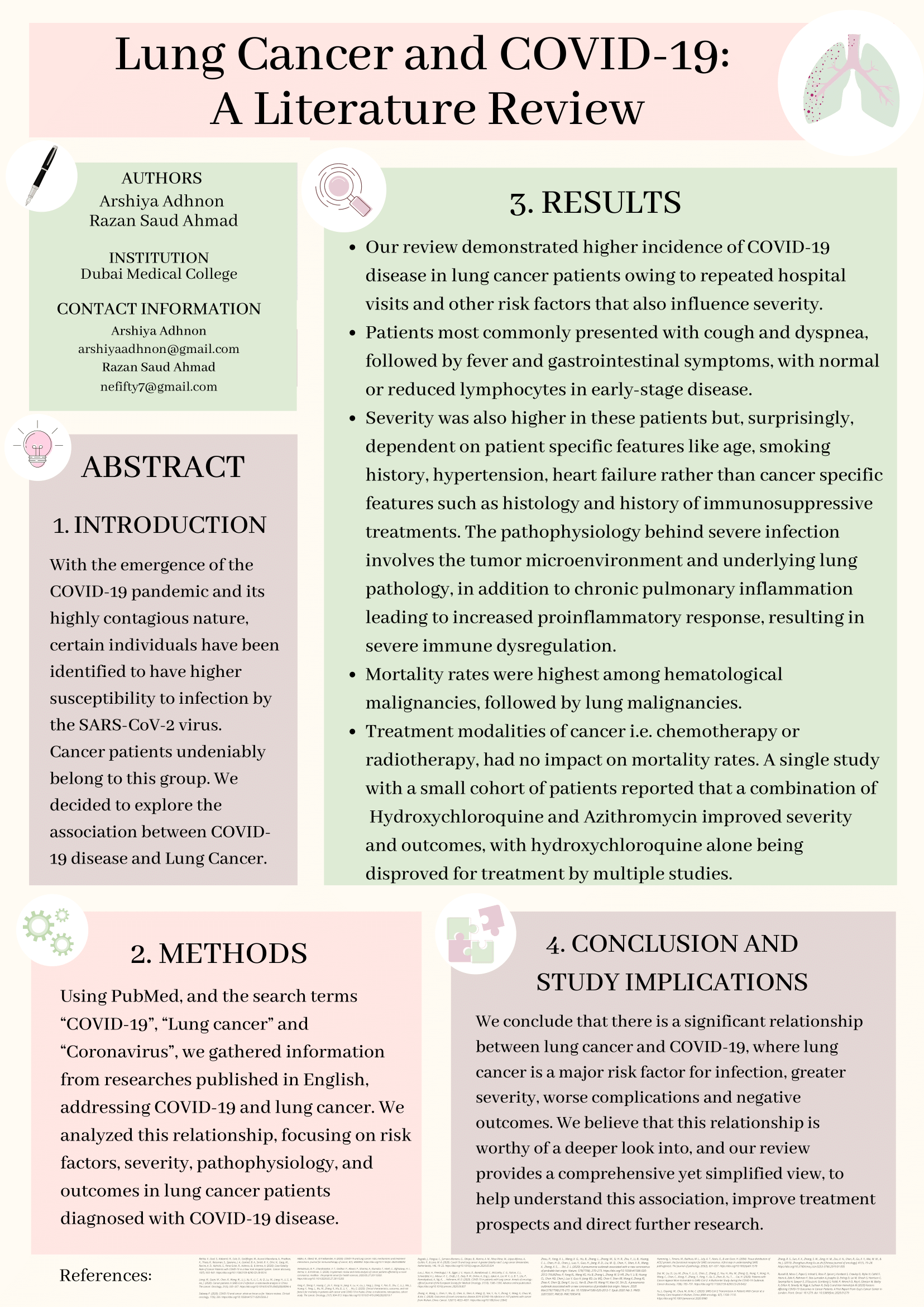Conference 2021 Poster Presentation
Project title
Lung Cancer and COVID-19: A literature review
Authors and Affiliations
Arshiya Adhnon1, Razan Saud Ahmad1
1. Dubai Medical College, Dubai, UAE
Abstract
Background
With the emergence of the COVID-19 pandemic and its highly contagious nature, certain individuals have been identified to have higher susceptibility to infection by the SARS-CoV-2 virus. Cancer patients undeniably belong to this group. We decided to explore the association between COVID-19 disease and Lung Cancer.
Methods
Using PubMed, and the search terms “COVID-19”, “Lung cancer” and “Coronavirus”, we gathered information from researches published in English, addressing COVID-19 and lung cancer. We analyzed this relationship, focusing on risk factors, severity, pathophysiology, and outcomes in lung cancer patients diagnosed with COVID-19 disease.
Results
Our review demonstrated higher incidence of COVID-19 disease in lung cancer patients owing to repeated hospital visits and other risk factors that also influence severity. Patients most commonly presented with cough and dyspnea, followed by fever and gastrointestinal symptoms, with normal or reduced lymphocytes in early-stage disease. Severity was also higher in these patients but, surprisingly, dependent on patient specific features like age, smoking history, hypertension, heart failure rather than cancer specific features such as histology and history of immunosuppressive treatments. The pathophysiology behind severe infection involves the tumor microenvironment and underlying lung pathology, in addition to chronic pulmonary inflammation leading to increased proinflammatory response, resulting in severe immune dysregulation. Mortality rates were highest among hematological malignancies, followed by lung malignancies. Treatment modalities of cancer i.e. chemotherapy or radiotherapy, had no impact on mortality rates. A single study with a small cohort of patients reported that a combination of Hydroxychloroquine and Azithromycin improved severity and outcomes, with hydroxychloroquine alone being disproved for treatment by multiple studies.
Conclusions
We conclude that there is a significant relationship between lung cancer and COVID-19, where lung cancer is a major risk factor for infection, greater severity, worse complications and negative outcomes. We believe that this relationship is worthy of a deeper look into, and our review provides a comprehensive yet simplified view, to help understand this association, improve treatment prospects and direct further research.

